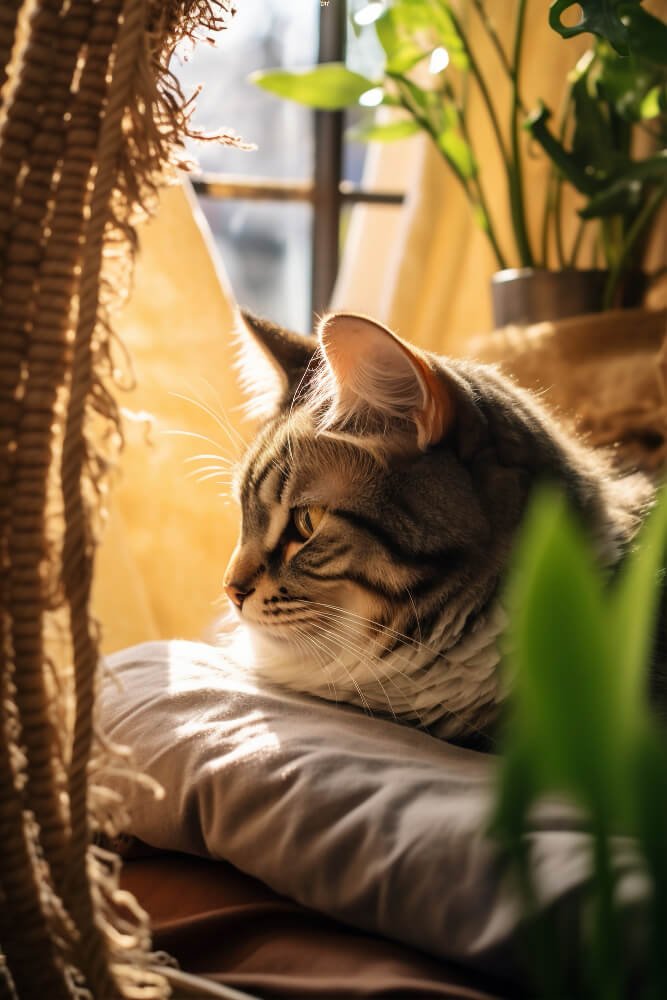How Do I Know If My Cat Is Lonely? 8 Signs to Look For
Cats are sensitive animals that are in tune with our emotions and handling. When you leave your cat alone at home too frequently or drastically change some of your habits, the cat may feel stressed and lonely. It is necessary to be able to notice the symptoms of loneliness, as it can develop into depression if not resolved quickly.
For this reason, we have compiled a list of the most common symptoms your cat will exhibit to show you it is lonely and needs more of your attention. Make sure to read them carefully, and if you recognize any of them, try to give your kitten some extra loving and attention.
The 8 Signs Your Cat is Lonely:
1. Eating Problems
Cats are creatures that enjoy daily routines and keeping certain habits consistent. When it comes to eating, they have a tradition that they’ll follow, which includes feeding at the same time of day or eating the same amount of food. When this ritual of feeding changes drastically, your cat may experience some stress. If your cat has a low appetite it can result from depression or extreme boredom. Their routine will be entirely disturbed if they feel anxiety due to loneliness.
Some cats may even develop an abnormal condition called pica, which gives them cravings for nonedible items. This condition can occur due to serious illnesses, compulsive disorders, dietary deficiencies, or simply boredom and loneliness.
2. Lethargy
As most people know, depression and loneliness can drastically drain your energy, leaving you unwilling to socialize, do basic daily chores, or even get out of bed. The same thing can happen with our furry companions. Cats are very sensitive beings, especially concerning the emotions of their human parents. They will often notice depression or loneliness in their owner and be in tune with that particular emotion. It will often be easy for the owner to spot any signs of loneliness in their cat, particularly because the cat will show a lack of interest and become lethargic.
3. Aggressive and Destructive Behavior
Cats feel loneliest when home alone since they have no stimuli to keep them occupied and entertained. If your cat spends much time being left home alone during the day, it won’t be long before they begin exhibiting strange behavior that may even become aggressive. One of the most common causes of your cat’s unexplained aggression is boredom or loneliness.
Make sure to spend quality time with your cats when you are at home, and if they need to stay home alone, provide them with plenty of toys and a comfortable resting area, and turn on the TV or the radio. This will keep them occupied for some time, but nothing can replace the time your cat wants to play and cuddle with you.
4. Litterbox Issues
One symptom that could tell your cat feels stressed out or lonely is the inability to use the litter box as usual. Before jumping to any sudden conclusions and suspecting a disease or a condition, the answer might be as simple as being stressed. If your cat suddenly begins marking around the house, including your personal belongings, it may be a way of communicating it feels stressed when left at home alone.
5. Becoming Clingy
When your cat becomes overly attached to you, following you wherever you go and always lying by your side, it can be a clear sign that it doesn’t feel too well emotionally. Your cat probably feels lonely and needs more interaction with you. Separation anxiety is a real concern that many pets exhibit at one point in their lives and they may show extremely needy and clingy behavior.
You can solve this behavior by providing your cat with plenty of activities for when it’s alone. Place food puzzles around the house to mimic their hunting instinct, leave out an abundance of toys, and provide them with perches to look outside.
6. Strange Sleeping Habits
As with other symptoms of depression or loneliness, you can expect your cat to spend plenty of time during the day sleeping. Cats usually need between 12 and 18 hours of sleep daily to help the body recharge, gain energy for the next day, and boost their immune system. If you notice your cat sleeping excessively, more than usual, it might be due to depression caused by loneliness.
7. Change in Grooming Habits
One routine cats adore is grooming themselves. Grooming is good for the cat’s skin and can even have a soothing effect on them. When cats feel stressed, lonely, or bored, they tend to groom themselves excessively to cope with a stressful situation. Suppose your cats stay home alone a lot, or there is a new family member, and they feel neglected. In that case, they may obsessively groom themselves, which is also known as psychogenic alopecia.
8. Meowing Excessively
If your cat meows excessively, you are probably stuck looking for the cause and the solution. Once you rule out any potential conditions or physical pain, it might be time to review how you spend time with your cat. One of the main reasons why your cat is excessively vocal will be out of sheer boredom, loneliness, or stress. If your pet spends too much time alone during the day, set up plenty of diverse activities it can do. Spend quality time with your cat, and you should quickly notice a change in its mood.
How to Keep Your Cat Feeling Happy and Loved
One of the best ways to avoid asking yourself whether your cat is lonely is to ensure it has all it needs to stay content and happy. Your cat needs to feel loved instead of neglected. It is crucial to have times during the day when you’ll play with your cat, teach it tricks, groom it, and cuddle it.
You should also provide your cat with plenty of entertaining activities to do throughout the day, such as a scratching post, string toys, a window perch, and toys you know your kitten will enjoy. Each cat has its own preferences, so trying out plenty of different techniques will tell you what your cat loves.
Conclusion
Hopefully, this article has all the information you need to know to understand whether your cat is lonely. These lovely creatures sleep a lot throughout the day, but they’ll want their favorite person by their side when they’re awake. Enjoy every second of playing with your cat, learning its communication techniques, and watching it grow into a loved pet. If you stick with this, you will never have to worry about your pet being lonely.


